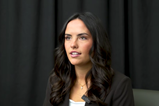Reading has been in decline for decades, with social media, Netflix and video games competing for our attention. There’s also a gender divide. The Telegraph recently reported that men are twice as likely not to read books at all. Krish Kandiah explains why he believes reading good books should be a priority for every Christian
I love books. I love the smell of them, the feel of them, the design on the cover, the words in the blurb. I have maxed out my library card with borrowed books. I spend my lunch hours browsing bookshops. At home, things have got to the point where we have had to deploy the one-in-one-out rule, due to the bookshelves being three books deep.
Our local charity shop has become extra storage for my books and I have been known to buy a book back from the shop that I donated it to. My Amazon wish list contains only books. I think it’s fair to say I am a bookaholic.
The arrival of e-books has helped the overcrowded shelving situation. I love that I have a whole library available to me on my laptop and Kindle. I am definitely more interested in paragraphs and phrasing than I am in pages and bindings. When I advocate for Christian engagement with books, I am more concerned that we turn over a new leaf when it comes to reading than we turn over physical leaves. However, I still love the look and feel of a printed book. And I love the fact that I can lend and give away a physical book – passing them on to others to enjoy and benefit from.
Books make great gifts for lots of reasons. They are simple to wrap and substantial to hand over. The sheer volume of books means that it is very unlikely or unfortunate if you get given the same title twice. But more than that, books make great gifts because they can change, stretch, revitalise, encourage, challenge and refresh like nothing else. A good Christian book can be vital for building your faith.
My neighbour believes in the importance of books, and so every day after school, she makes her children spend half an hour reading. It is only when the allotted time is up that they can go off and do the fun things they want to do. Although the mum’s intentions are good, I’m not convinced this is the best way to instil a love of reading in others. Their disgruntled faces remind me of mine during the daily dose of cod liver oil my mum used to force my sister and me to take. It may have been good for us but it did not inspire us to live healthy lives. I believe a passion for reading is more caught than taught, and so here are the five main ways I have been inspired to love and value books. I hope you can catch something of my sense of excitement at the potential Christian books have to help us to flourish.
1. Reading bonds us together
In the award-winning film about the life of CS Lewis – Shadowlands – a central theme is the repeated line: “We read to know we are not alone.” When we read we are connected to the author in a very profound way. Shared learning can also connect us with other readers.
A study from psychologists at the University of Toronto connected fiction-reading with an increased sensitivity to others. I believe this empathy-building can come from other genres too. A good writer will communicate their passion for their arguments or discoveries, whether they are writing a commentary or a book on spiritual disciplines. Matthew Henry’s commentary is full of personal comments that bring the Bible to life. All of Tim Keller’s books have an inspirational effect on me. Biographies too give us a unique insight into another person’s life. When I read Dietrich Bonhoeffer’s Letters and Papers from Prison I was so challenged by his ability to wrestle with huge questions of faith with honesty and integrity and yet stay faithful to God. By connecting with inspiring believers from around the world I am broken out of the bubble of my circumstances and forced to feel what my brothers and sisters are going through. Reading helps us to suffer when one part of the body suffers, and rejoice when one part of the body rejoices (1 Corinthians 12:26).
Too often I have dismissed the views of other Christians because they do not align with mine. Thanks to the algorithms that control the filtering of the social media I am exposed to, I can be limited in my outlook, only seeing the views presented to me of people I agree with. Deliberately exposing our thinking to the best articulation of other views is an important way we can make sure we understand and empathise with other people. Reading different views keeps us humble and helps us to check if what we believe really is biblically based rather than sociologically programmed.
2. Reading stretches our minds
When the apostle Paul was in prison he wrote letters of encouragement to churches and disciples. The letters rarely included any request for anything in return. But in 2 Timothy Paul specifically asked for a cloak to keep him warm – and his books. Charles Spurgeon, the 19th century ‘Prince of Preachers’ who regularly spoke to thousands, reflected on Paul’s request:
“He is inspired, and yet he wants books! He has seen the Lord, and yet he wants books! He has had wider experience than most men, and yet he wants books! He had been caught up in the third heaven, and had heard things unlawful for a man to utter, yet he wants books! He has written a major part of the New Testament, and yet he wants books! The apostle says to Timothy and so he says to every Christian, ‘Give thyself to reading.’ The man who never reads will never be read; he who never quotes will never be quoted. He who will not use the thoughts of other men’s brains proves he has no brains of his own.”
Perhaps we can be inspired by Paul’s love of books. The word disciple is derived from the Latin discipulus which literally means ‘pupil’ or ‘learner’. Reading is definitely not the only way you can learn, but it is one of the most straightforward. Pete Greig, the founder of the 24/7 prayer movement, put it like this: “Reading isn’t really about reading, it’s about ‘do we want to learn?’”
Nicholas Carr’s famous essay ‘Is Google making us stupid?’ explored the way that digital literacy may be eroding general literacy. We read articles on a screen in a very different way than we used to read books. This is significant as a huge study by the National Literary Trust of 35,000 children found that the majority of the 8 to 16-year-olds they interviewed preferred to read on a screen to physical books, with some 39 per cent reading every day on a computer and only 28 per cent reading using print materials (the rest didn’t express a view or claimed they did not read at all). Perhaps this preference is not limited to young people, as even our newspapers show a rapid decline in physical sales and an increase in online access.
When we read online we tend to scan along the top line of the article and down the left-hand side of the text. We scan the page for information, quotes, links that we can click on. Carr argues in his follow-up book The Shallows (WW Norton) that because of the way that social media works it overstimulates our brain in unhelpful ways so that the circuitry of our brain is rewired.
The idea that our internet usage is internally rewiring us sounds pretty frightening. It could be part of the general fear and insecurity that disruptive technologies elicit in us. But perhaps it is a good thing to stretch our brain muscle, just as exercise brings cardiovascular efficiency or toning to our muscles. The side effects of online reading may include a shortened attention span and a limited ability at deep and critical thinking. These can be counteracted by deep reading alongside the scan reading we are getting so good at. Imagine the power of both quick and deep thinking.
Krish’s best books
If it has been a long time since you invested time in reading, you will want to read books that inspire you as well as help you. Let me suggest six books that may whet your appetite:
1. The Hiding Place
Corrie Ten Boom (Hodder & Stoughton)
Want to learn how to resist tyranny? Read this book and you will not be the same again.
2. The Gospel in a Pluralist Society
Lesslie Newbigin (SPCK)
This is the book that made me want to be a theologian. It has so many big ideas that, like me, you may need to read it twice in a row.
3. Every Good Endeavour
Tim Keller (Hodder & Stoughton)
Here’s a book that gives us a fresh vision for our daily work.
4. When Helping Hurts
Steve Corbett & Brian Fikkert (Moody Publishers)
This book will radically challenge the way you engage with global poverty. It might make you the awkward person at your church meetings too.
5. How to Read the Bible for All Its Worth
Gordon Fee (Zondervan)
This book will change the way you read the Bible. There’s gold on every page.
6. Unapologetic
Francis Spufford (Faber & Faber)
The first apologetic I can remember that speaks to a Guardian-reading audience. (Warning: contains strong language)
3. Reading feeds an appetite
“I read because I’m hungry. I read because I long to hear the words of God rolling around my mind when I go to bed at night. I read because I want to know more about the world that God’s placed me in and the call of God on my life. I read because I want to grow in character and communication. And I read because actually I just love it.”
This is what Rachel Gardner, president of Girl’s Brigade and relationship lead at Youthscape, said when I asked her why she was so excited about reading books. Although busy as one of the UK Church’s inspirational leaders, she recognises that she has a fundamental appetite that reading helps feed. I have seen a similar hunger in other key leaders in the Church. J.John has spoken to more than a million people through nationwide initiatives such as his Just10 tour. He told me that before he became a Christian he wasn’t much of a reader. But after he was converted something radically changed: “I was so hungry I couldn’t stop reading. I was reading chunks of the Bible, biographies, Hudson Taylor, you name it. It would not be an exaggeration to say I read a book a night.” Andy Croft, the codirector of Soul Survivor, was equally adamant that “Reading has always had a massive role in me growing as a Christian. It’s one of the main ways that I learn”.
Sometimes we don’t know just how hungry we are until we sit down in front of a good meal. The same is true for reading. A good book can feed us in places we did not realise we needed feeding. Books by authors such as Tom Wright, Lesslie Newbigin and James KA Smith have surprised and satisfied me beyond my expectations. I am so grateful to the people who recommended them to me.
Top-rated books
The following six books have all received five-star reviews in Premier Christianity magazine:
1. The Atheist Who Didn’t Exist
Andy Bannister (Monarch)
Andy Bannister’s take on why atheists need to rethink their world view. Our reviewer said: “Bannister’s humorous and downto-earth approach will be a brilliant starting point for anyone wanting to put a stone in the shoe of their atheist brethren.”
2. Overload
Joyce Meyer (Hodder & Stoughton)
Joyce Meyer shares her own experiences of burnout and provides guidance on how to defeat stress. Our reviewer said: “Meyer gives valuable insights into where stress comes from. This is a book full of encouragement and an exhortation to love and good works.”
3. Making Sense of God
Tim Keller (Hodder & Stoughton)
In this prequel to his bestseller The Reason for God (Hodder & Stoughton), Tim Keller explains why Christianity provides humanity with unsurpassed resources to give us meaning, satisfaction and freedom. Our reviewer said: “Keller has produced a first-class book which sceptics should find both fair and challenging.”
4. God in Public
Tom Wright (SPCK)
One of the world’s leading New Testament scholars explains how faithful exegesis of scripture can throw fresh light on contemporary ethical problems. Our reviewer said the book “provides a realistic critique of why ‘we don’t do God’ in the public square”.
5. The Perfectionism Book
Will van der Hart & Rob Waller (IVP)
This book will make you view perfectionism as a problem rather than a goal. Our reviewer said: “The chapters that identify gratitude and compassion as godly tools that can help displace perfectionist tendencies could well be life-changing.”
6. In a Land of Paper Gods
Rebecca Mackenzie (Tinder Press)
This story about a child far from home and caught between two cultures may not be a typical Christian novel, but our reviewer said: “if you love a book that transports you to another time and place, and that really gets inside the head and heart of a character, this is a rich and rewarding read.”
4. Reading ignites a passion
One of my mentors when I was at university was a Christian leader called Nigel Lee. We would meet fortnightly for Bible study and prayer and he would pass on to me books from his sizeable library. When I later met George Verwer, the founder of Operation Mobilisation, he was wearing a plastic jacket that looked like a globe and he was carrying a leather suitcase full of books. Everywhere he went he would recommend or give away books. I later discovered that he had mentored Nigel and had passed on his love of books to him. Now as the third generation in this chain reaction I feel it is my responsibility to pass on a love of books, not by nagging, but with the passion I saw in them.
Talking to a number of booksellers across the UK, many of whom are facing hard times, they believe one of the biggest reasons that people aren’t reading is that very few church leaders are recommending books.
5. Reading kick-starts a revolution
A revolution in our reading habits would be a great thing in itself. But as well as the mental benefits, and the emotional and spiritual nourishment this could bring, is the potential for a much bigger revolution. There are some fantastic books out there that, if widely read and practised, could change the world we live in. Books on prayer. Books on unity. Books on ushering in God’s kingdom. Books that could recalibrate the Church, re-energise Christians and transform our communities. Perhaps you have come across a book like that. Please – don’t keep it to yourself! Rave about it, recommend it and review it. Give away multiple copies and let the world know.



































